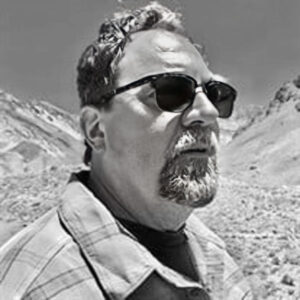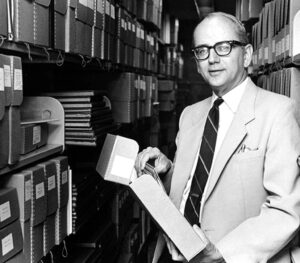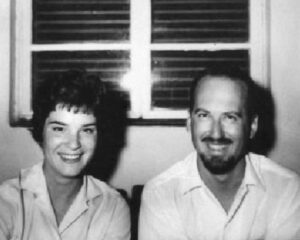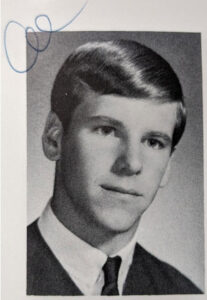Donald J. Zeigler
An Exemplary Geography for Life Explorer
Don Zeigler’s colleague, Jonathan Leib, reports that Don knew at an early age that he wanted to be a geographer. While in high school he joined the American Association of Geographers (AAG) and was a member for the rest of his life. His career began with teaching high school geography for three years. After earning his Ph.D. in 1980 from Michigan State University, he became a professor in the Department of Political Science and Geography at Old Dominion University until he retired in 2016. He was department chair from 1990 to 1994.
In 1986, in cooperation with the Virginia Department of Education, Don wrote a proposal to create the Virginia Geographic Alliance (VGA). He worked to secure funding from Gilbert Grosvenor, Chairman of the National Geographic Society (NGS) and Gerald Baliles, Governor of Virginia. He helped lead the VGA for more than 30 years and the organization continues to serve students, K-12 educators, and higher education faculty across Virginia.
Don was president of the National Council for Geographic Education (NCGE) in 1997. He was president of Gamma Theta Upsilon, the international geography student honor society in 2009 and 2010. During the 1990s he worked to create the Advanced Placement Human Geography (APHG) program. In addition to a term as Chief Reader, he led annual readings and conducted workshops, institutes, and travel seminars for high school teachers. Thanks to his consistent efforts APHG is offered in thousands of high schools across the United States.
The first National Standards in Geography in the United States, published in 1994, were aptly named “Geography for Life.” The title encompasses the profound meaning of places and environments in every human life and recognizes that each person is engaged in a lifetime adventure of meaning making through exploration, discovery.
Don was an exemplary “geography for life” explorer. Earth was his primary source of inquiry, his knowledge, analytic skills, and diverse perspectives. All his senses were on alert as he traveled widely and attentively across many time zones, cultural landscapes and physical environments. He developed a keen sense of place while immersed in unique places, always knowing that the places were all interacting in a complex web of global physical and cultural systems. He could skillfully trace and explain those multiple interactions.
Wherever he found himself, he was a keen observer of his surroundings. He saw details others missed or disregarded, he listened intently to other people and to sounds in the environment. He tasted and touched his way across many countries. In his mind he carried an extensive atlas of mental maps to draw upon when doing research or presentations. He developed his own geographic information system and personal navigation system before the widespread use of computer-based GIS and GPS. Don had an extensive repertoire of five-minute lectures through which he explained complex concepts in simple terms or provided a detailed description of a landscape he had experienced.
Although we may be sometimes alone in our explorations, we are also embedded in communities in particular times and specific places. We need geographic knowledge, skills, and perspectives to inform us as we journey together seeking our own wellbeing and the wellbeing of our life companions.
Geography is for life and for a lifetime. Don embraced this perspective and lived it out in several professional and personal communities. He invested many years serving and leading geography organizations. Examples include, Gamma Theta Epsilon, 53 years; Association of American Geographers, over 50 years; National Council for Geographic Education, over 50 years; Old Dominion University, 36 years; Virginia Geographic Alliance, 36 years; and Advanced Placement Human Geography, over 20 years.
Don received numerous well-deserved state and national awards for research, teaching, and service. Among the major honors he earned are a State Council of Higher Education for Virginia (SCHEV) Outstanding Faculty Award in 2006, Gilbert Grosvenor Honors in Geographic Education in 2009, the inaugural AAG Harm J. de Blij Award for Excellence in Undergraduate Geography Teaching in 2016, and NCGE George J. Miller Award for Distinguished Service in 2017.
During his career, Don taught more than 50 different courses at the graduate and undergraduate levels. They included large lecture sections, graduate research seminars, foreign area field studies, transects across Virginia for teachers, world geography and history webinars, and televised courses for students, teachers, and the public. Additionally, he served as Fellow at the American Centers of Oriental Research, Amman, Jordan in 2001, Fulbright-Hays Scholar, Morocco, in 1989, Visiting Scholar, Aleppo University, Aleppo, Syria in 1993.
In his personal and professional life, Don offered no negative judgments of others, praised generously, criticized sparingly, and seldom complained. He always offered others support, encouragement and compassion. As he spent his life exploring Earth’s diverse and constantly changing environments, I am certain that along with his backpack, he carried an attitude of gratitude at every latitude.
Don Zeigler inspired us with his unfailing humility, grace, and enthusiasm for the next exploration. As “geography for life” explorers, let’s follow his example.
Submitted by Robert W. Morrill, Professor Emeritus, Geography, Virginia Tech
 Also an adventurer, Harry enjoyed traveling the world. He explored Indonesia, swam the oceans of Nicaragua, walked the streets of Buenos Aires, hiked the mountains of Argentina, and explored the high desert plains of Colorado. He visited many national parks, here and abroad, sharing a love of nature and the outdoors with his wife and best friend, Terry. He sought to learn about these places and was an active observer and researcher, never forfeiting a chance to gain insight or perspective about how our planet and its people work.
Also an adventurer, Harry enjoyed traveling the world. He explored Indonesia, swam the oceans of Nicaragua, walked the streets of Buenos Aires, hiked the mountains of Argentina, and explored the high desert plains of Colorado. He visited many national parks, here and abroad, sharing a love of nature and the outdoors with his wife and best friend, Terry. He sought to learn about these places and was an active observer and researcher, never forfeiting a chance to gain insight or perspective about how our planet and its people work.

